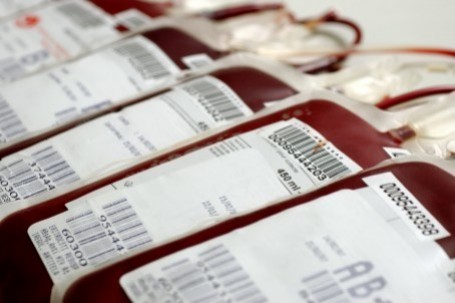
Who is not allowed to donate blood?
Prior to making the decision on blood donation, potential donors are required to check if they meet the criteria set for blood donors (self-exclusion). You can bring along the completed questionnaire.

Prior to completing it, it is MANDATORY that you read the leaflets:
What does a donor need to know before giving blood?
HIV and hepatitis
The Creutzfeldt–Jakob disease is a disorder affecting the central nervous system due to rapidly progressive degeneration of brain cells. It is revealed through physical symptoms (personality and behavioural changes, emotional instability) and disrupted memory, perception and movement (poor coordination, involuntary movements, spasms). The disease is terminal after several months or years. No successful treatment method has been found yet.
There are several forms of the Creutzfeldt-Jacob disease. In addition to the genetic form that occurs within families and takes a slower course, there is also a form that is not hereditary. This form of disease is transferred by prions, tiny protein particles found in the brain and some other tissues of those affected by the disease. It has been found that the disease can also be transmitted through the meningeal transplant of an infected donor and through treatment using human pituitary extracts. However, the transmission of this disease through blood and blood products has not been proven yet.
Since 1994, individual cases of a new form of this disease have emerged that has been related to the outburst of the “mad cow disease” epidemic in Great Britain. Namely, protein particles and abnormalities similar to the new form of the Creutzfeldt-Jakob disease have been found in the brains of diseased animals, which is why it is believed that the source of infection was infected beef.
As there is no reliable proof that the disease cannot be transmitted through blood, it is not permitted to donate blood:
If you have any questions or require further explanation, do not hesitate to contact us at info@ztm.si or phone us at (+386) 01 5438113 between 7 a.m. and 2 p.m.
By providing true information about your health condition, you will guarantee that by giving blood your health will not be harmed and that the transfusion of your blood will not harm the patient’s health.
If you believe that your blood is not safe for patients; however, you cannot or would not like to provide information in this regard, it is possible to exclude yourself from the process.
If you get sick after giving blood or subsequently discover that you had been in contact with an infected person prior to giving blood, you are kindly requested to inform the collecting organisation where you donated blood as soon as possible.